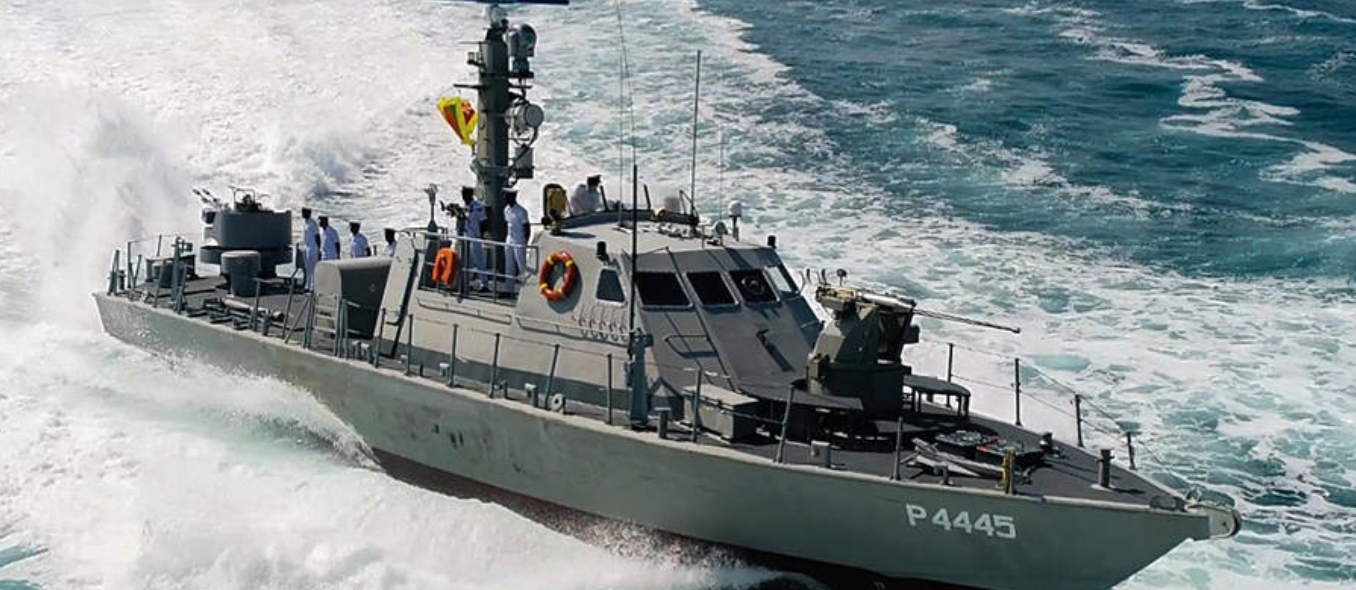
The Sri Lankan navy announced it has “doubled” its patrol units in the Northern seas, after a father and daughter from Mannar crossed “illegally” to the island, after decades living as refugees in India.
“We have strengthened our patrolling unit around the clock along the International Maritime Boundary Lane region to monitor illegal passage into our territorial waters,” said Captain Indika se Silva, the newly-appointed Media Coordinator of the Navy, to the Sunday Times. “At night, we have doubled our patrolling units.”
The announcement from the navy comes after a 33-year-old father, J. Pulendran, and his eight-year-old daughter were helped by two fishermen who hoisted them onto their trawler to take them from Rameswaram to Mannar last month. Soon after neighbours heard of Pulendran and his daughter’s arrival, the police and local health authorities were notified.
Four people, including the father, daughter and the local fishermen were taken into Navy custody and posed before the Mannar magistrate and also arrested six other Tamils who allegedly helped them enter the island. Pulendran faces legal action for entering the country without a valid visa.
As a reported precautionary measure, the Mannar District Secretariat Mohan Ras office has called for local authorities, the navy, and the assistance of the coast guard, to track the recent pattern of Sri Lankan-origin refugees illegally returning home, regardless of minimal proof it is a multitudinous incident.
Ras reassures, “It shouldn’t be interpreted as Sri Lankan origin refugees not being welcome here,” but growing militarization of the North East runs contradictory. This includes but is not limited to the appointment of war criminals to lead task forces, the murder of a 24-year-old Tamil man by Sri Lankan army soldiers, military-run quarantine centres, an arbitrary curfew, and the involvement of the army in several areas of civilian life in the North-East.
At least 100,000 Eelam Tamil refugees currently reside in camps across Tamil Nadu and are subject to possibly contracting coronavirus and losing their means to earn a liveable wage. Tamil Nadu is particularly vulnerable to the virus’s widespread reach, totalling 171,000 confirmed cases of and 2,481 deaths by coronavirus today. In contrast to only 2,724 cases and 11 deaths in Sri Lanka.
“Prior to the lockdown, we had been working in areas beyond Cuddalore. But now, we are unable to go to work even within Cuddalore,” said Gunarathinam, inmate of the Kurinjipadi camp told BBC Tamil.
Hardly welcomed by either container, a sense of displacement wracks refugees who initially fled Sri Lanka to escape state oppression and continue to be refused citizenship by the Indian government. Eelam Tamils have lived in Tamil Nadu for three decades and have conceived children who have not visited the island.
“How much longer must we live as refugees?” Asks Mahendran who arrived at Batlagundu camp in 1990.
We need your support
Sri Lanka is one of the most dangerous places in the world to be a journalist. Tamil journalists are particularly at threat, with at least 41 media workers known to have been killed by the Sri Lankan state or its paramilitaries during and after the armed conflict.
Despite the risks, our team on the ground remain committed to providing detailed and accurate reporting of developments in the Tamil homeland, across the island and around the world, as well as providing expert analysis and insight from the Tamil point of view
We need your support in keeping our journalism going. Support our work today.
For more ways to donate visit https://donate.tamilguardian.com.

